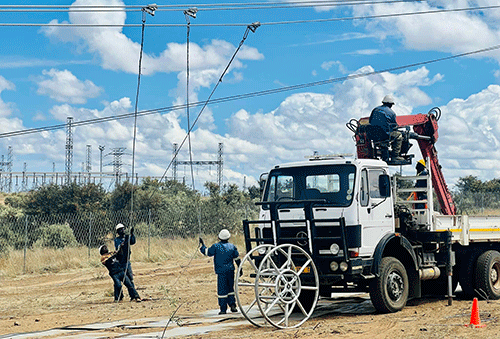After being ignored last week, Cabinet again directed national power utility Nampower to discontinue the suspension of electricity for local authorities in arrears.
With power suspensions ongoing, Cabinet has issued a second directive to finance and public enterprises minister Iipumbu Shiimi to engage the entity.
Despite sticking to its decision, NamPower was clearly instructed not to suspend the supply of electricity to defaulting local authorities as a means to expedite revenue-collection.
This information was announced by deputy information minister Emma Theofelus on Thursday while delivering a raft of other key decisions by the executive.
“Cabinet endorsed the proposed short and long-term solutions to address the structural problems in the supply of utilities across the country, which amongst others include the roll-out of prepaid metering systems, review of local authorities’ financial status, and local authorities’ reform,” she noted.
NamPower last month stated that the corporation was owed a staggering N$1.5 billion, of which N$842 million is overdue. The utility stressed that it is crucial to collect what is owed for the sustainability of the business and that of the country.
However, Cabinet did not shy away, and took note of identified root causes responsible for increasing local authorities’ debt to both Namwater and NamPower. These include constrained economic activities in most local authorities, resulting in an inability by many residents to afford basic goods and services, ageing water and power infrastructure, and illegal connections due to the high rate of urban migration that’s causing sprawling informal settlements, which translates into lost revenues for local authorities.
The first directive was issued last week through Shiimi, who advised through a statement that NamPower should put the decision on hold, pending further consultations between the finance ministry, the urban and rural development ministry, as well as local authorities.
However, NamPower’s directors and management resolved to proceed with the planned power suspensions, which commenced last week for indebted local authorities, as per its debt collection plan.
In a statement issued last week, NamPower confirmed receiving the Cabinet directive. But they said after due consideration, the board unanimously decided to exercise its fiduciary responsibilities.
“The company resolved to proceed with the disconnection plan because it is in the best interest of the financial sustainability of the company, and for the sustainability of electricity supply in the country. Disconnecting defaulting customers was the last resort after exhausting all existing interventions to collect long-outstanding debts as non-payment of debts detrimentally affects the company’s duty to supply electricity to the entire country on a sustainable basis,” read their statement at the time.



